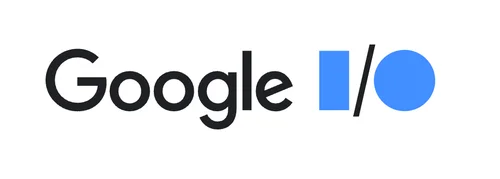Google’s annual I/O developer conference in 2024 left no doubt about the company’s central focus: Artificial Intelligence is being woven into the fabric of nearly all its products and services. CEO Sundar Pichai framed the numerous announcements as part of Google’s ongoing mission to make AI helpful for everyone, ushering in what the company calls the “Gemini era.” From fundamentally changing Google Search to offering glimpses of futuristic AI assistants, the event showcased a comprehensive strategy to deploy AI at scale.
The sheer volume of AI-related updates underscored Google’s commitment to competing aggressively in the rapidly evolving AI landscape, leveraging its vast data resources and research capabilities.
Gemini Era: Integration and Enhancements
The Gemini family of AI models, Google’s most capable to date, was the star of the show, with significant updates and wider integration across the Google ecosystem.
Gemini in Google Search
Perhaps the most impactful change for everyday users is the introduction of “AI Overviews” in Google Search. Powered by a customized Gemini model, this feature provides AI-generated summaries and answers directly at the top of search results pages for complex queries. Google demonstrated its ability to handle multi-step reasoning and synthesize information from various sources. While initially launching in the US, this feature signals a major shift in how users find information online, moving beyond simple links to direct, conversational answers.
Gemini 1.5 Pro Updates
The powerhouse Gemini 1.5 Pro model received notable upgrades. Its context window, the amount of information it can process at once, was expanded to a standard 1 million tokens, with availability for developers via API. A staggering 2 million token context window was also previewed, opening possibilities for analyzing massive documents, codebases, or even hours of video content. Gemini 1.5 Pro is now integrated into Gemini Advanced for consumers and various developer tools.
Gemini in Workspace
AI integration within Google Workspace (Docs, Sheets, Gmail, etc.) continues to deepen. The Gemini side panel is becoming more prevalent, offering features like summarizing emails, generating text drafts, creating presentations from documents, and organizing data. These tools aim to enhance productivity and creativity for millions of Workspace users.
Gemini Nano
Google also highlighted improvements to Gemini Nano, its smallest model designed for on-device processing. This enables AI features on Pixel phones to run directly on the device for faster responses and enhanced privacy, powering features like summaries and transcription.
Project Astra: The Future of AI Assistants
Google offered a compelling glimpse into the future with Project Astra, a research initiative focused on building truly intelligent, multimodal AI agents.
Vision and Conversation
Demonstrations showed an early prototype of Astra running on a phone, using the camera and microphone to perceive the user’s environment in real time. The agent could identify objects, understand context, answer questions about what it was seeing, and even remember previous interactions within the same session.
Multimodal Understanding
Project Astra is designed from the ground up to process and reason across different modalities – vision, speech, text – concurrently. This allows for a more natural and intuitive interaction, moving closer to the idea of an AI assistant that can genuinely understand and interact with the physical world alongside its user.
Potential Applications
While still in development, Astra points towards future AI assistants capable of providing contextual help with everyday tasks, learning complex subjects interactively, or offering powerful accessibility tools. Google indicated that elements of Astra would eventually enhance products like the Google app and potentially power future hardware devices.
New AI Models and Tools
Beyond Gemini integrations, Google unveiled several new specialized AI models and infrastructure updates.
Imagen 3
Google announced Imagen 3, its most advanced text-to-image generation model yet. It promises improved photorealism, better understanding of complex prompts, more natural-looking details (especially hands and faces), and enhanced text rendering within images.
Veo
In the rapidly growing field of video generation, Google introduced Veo. Positioned as a competitor to OpenAI’s Sora, Veo generates high-definition video clips from text prompts, offering controls over cinematic style and visual consistency.
Open Models and Infrastructure
Continuing its support for the open-source community, Google introduced PaliGemma, an open vision-language model, and previewed Gemma 2, the next generation of its lightweight open models. The company also announced its 6th generation Tensor Processing Units (TPUs), named Trillium, designed to provide significant performance and efficiency gains for training large AI models.
Responsible AI Development
Amidst the wave of powerful new AI capabilities, Google emphasized its commitment to responsible development.
AI Watermarking
The SynthID tool, used for watermarking AI-generated images, is being expanded to cover text and video generated by Google’s models. This aims to help identify synthetic content and combat misinformation.
Safety and Ethics
Google reiterated its AI principles and highlighted the safety filters and testing protocols applied to its new models and features. Addressing potential biases and ensuring robustness remain key focus areas as these technologies become more integrated into people’s lives.
In summary, Google I/O 2024 demonstrated a company fully embracing the AI revolution. By deeply integrating Gemini across its core products and showcasing next-generation capabilities like Project Astra, Veo, and Imagen 3, Google solidified its position as a major force in AI development. The impact of these changes will be felt broadly, affecting how users search for information, work, and potentially interact with technology in the future.
